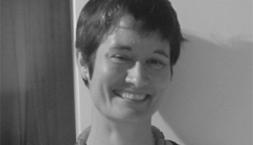Professor in Residence, Department of Architecture, GSD, Harvard University, Cambridge MA, USA
Vandalism is an alternative form of design narrative, a subversive practice of reading architecture and urban systems, and a fundamental way key voices can be heard. Architects, city planners, officials and the public should value such reads as constructive engagement enriching the life of a built work. Architecture usually results from elaborate systems of power, capital, and privilege - though its presence affects everyone in the city. In the periphery of public space, dynamic alternative practices emerge that communicate and critique. Vandalism, especially in areas of contested “ownership” in public space, is an architectural counterpoint, a dissent available to people without conventional means of power. It is intrinsically linked to the pedestrian experience of cities, and therefore opens reconsideration of walking as knowing, especially in an urban terrain vague [empty lot]. Technologies of sharing allow us to broadcast transgressions, track goings on, exploit urban problems for artistic gain, and conduct vandalism in public space. Focusing attention on a public farm building designed collaboratively within an urban park will frame broader discussion of these complex relationships at work, specifically considering vandalism as a form of engagement.
















